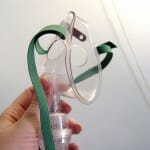We all want to age well — like a fine wine we imagine ourselves improving with age … well at least I do. But sometimes it is hard to get a handle on what that means and how you measure it?
Scientists measure aging well in two ways — objectively or subjectively. Objective measurements include longevity (how long am I living) and freedom from chronic disease (if I don’t have diabetes I am aging better than if I did have diabetes). They are easily measurable criteria. However, if they are your only criteria you don’t really capture what is important.
As Abraham Lincoln said: It’s not the years in your life that count — it is the life in your years.
So when the research scientists go out and ask individuals who are 50+ what matters to them, they tend to focus more on the subjective measures. Those subjective measures include: financial security, supportive social relationships, a sense of purpose, the ability to cope or adapt, spirituality and overall life satisfaction.
Out of all those subjective measures I really like overall life satisfaction as a measurement tool. It is flexible enough to include the things that are most important to the individual and broad enough to have room for different perspectives.
So how do you achieve overall life satisfaction?
One of the fundamental elements of aging well and achieving overall life satisfaction is good brain health. Taking care of your brain so that you are able to have ‘life in your years’ is key.
Taking care of your brain requires that you address six areas of your life. Five of those areas are encompassed in Dr. Paul Nussbaum’s brain health lifestyle ® and the sixth is the secret sauce that, in my view, makes life worth living.
The five areas in the brain health lifestyle ® are mental stimulation, physical activity, socialization, nutrition or spirituality. These are areas that science shows make an impact on the health of your brain as you age.
There are also other aspects of lifestyle – like sleep and attitude – which impact on brain health and which we will cover in other posts but I want to start with an overview of the science in each of these five fundamental areas.
Mental Stimulation
Engaging with the novel and complex on a daily basis promotes brain health. This includes learning something new, which actually involves a neurophysiological series of events that change our neural systems, our neural chemistry and our brain function. Engaging in the new and complex can also assist with new brain cell development (neurogenesis).
This type of response to new learning was demonstrated by a research study done on medical students at the University of Hamburg. The students had three fMRI’s taken of their brains — one before final exams, one during final exams and one after final exams. What the researchers discovered is that their brains grew in size over those six weeks.
It doesn’t mean you have to study to be a medical doctor to grow a large brain. But you do have to engage in intellectually challenging activities.
The important thing to remember is that novel and complex for one person may not be novel and complex for someone else. It is important to find something that challenges you. You may want to learn a new language, a new knitting pattern, or dust off a musical instrument. The important thing is to find something intellectually engaging and challenging.
Physical Activity
You may wonder how much physical activity you should do to have an impact on brain health?
The FINGER study out of Sweden found that lifestyle changes like increased physical activity, mental stimulation and improvement in nutrition improved cognitive performance by 25%.
In that study, individuals completed one hour of aerobic exercise four (4) times a week.
Physical exercise has also been shown to have a positive effect on the size of the hippocampus. The hippocampus is an important part of your brain and when it shrinks in size your brain becomes compromised.
Getting Maximum Effectiveness from Aerobic Exercise
To get maximum effectiveness the aerobic exercise was done at 70% of the individual’s maximum heart rate. To calculate that benchmark you need to subtract your age from 220. That will give you your maximum heart rate.
If you are 80 years old, your maximum heart rate would be 140 beats per minutes or 14 beats in six seconds. To exercise effectively, you should therefore be getting your heart to work at 70% of your maximum heart rate, which in the case of an individual who is 80 years old would be 98 beats per minute. (105 if you are 70 years old; 112 if you are 60).
Use this HealthStatus Target Heart Rate calculator to determine what your value is.
Of course this is a benchmark — and you should check with your physician to determine if this type of exercise program is right for you — but if you are in good health, and your doctor says this type of exercise is appropriate for you, it is a great benchmark to use.
So — the question to ask is ‘are you getting enough aerobic physical activity?’ And if not — why not? Physical exercise is an excellent and effective reducer of cognitive decline so get walking, swimming, dancing at least three times a week.
Nutrition
Scientists are finding more and more evidence that nutrition is playing a crucial role in brain health, particularly in the areas of depression and dementia. Researchers are identifying key nutritional elements that play an important role in reducing depression and dementia risk. In particular, omega 3 fatty acids, magnesium, calcium and vitamins B1, B9, B12, D and E have been identified as nutrients essential for brain health.
Scientists have been working on a list of Brain Essential Nutrients (BEN) and are developing the BEN Scale*. As this research gets more sophisticated you will likely begin to see not only ‘heart healthy’ food labels but ‘brain healthy’ food labels in the grocery stores.
This is definitely a growing area of research and interest as connections are found between nutrition, depression and dementia.
Socialization
A social brain has a higher potential of being a healthy brain. Research has shown that active social networks are a protective factor for cognitive function. In fact, loneliness is twice as dangerous as obesity to mortality rates.
We are wired to connect to others — isolation and loneliness are associated with an increased risk for dementia. So it is important to nourish your social networks.
In a recent study out of the University of Oregon, scientists found that spending ‘face’ time with family and friends reduced the rate of depression. It is interesting that in this study, phone calls and email did not have an effect on a person’s mental health but spending face-to-face time had a significant impact.
Obviously human interactions that create a positive and supportive social network are vital to good mental health.
Spirituality
The definition of spirituality used in the brain health lifestyle ® encompasses all of your inner world and part of that inner world can be quite difficult — that part dealing with forgiveness.
It is easy for us to hold onto resentments and past hurts. But resentment is like chain smoking hate — it is incredibly corrosive to our inner selves. Forgiving (both yourself and others) is an important step to inner serenity and peace.
Research shows that individuals who pray or meditate regularly have better cognitive health. I think a big part of that is the reduction of stress. We know that stress can do a real number on our brain so make sure that you are not neglecting this area of your live. While this is a personal journey for everyone it is important to at least walk it.
The Secret Sauce
And of course, the secret sauce: having a passion or a purpose to living. We need to find our why — our reason to get up out of bed every morning. When your brain is healthy it is easier to have clarity about this. It is easier to see where you can make a contribution.
Building a framework where you can thrive, through the brain health lifestyle ®, helps create a positive environment where it is easy to find passion and purpose. And research out of Rush University Medical Center finds that having a sense of purpose reduces the risk of dementia by 25%.
All this information is really important but the driving factor in any change is to understand your motivation or your why.
Why do you care about brain health?
What is your motivation to make lifestyle changes and live well?
One of the big reasons is the desire to connect with and maintain relationships with the people in your life who are important to you.
Our ability to interact with our friends and family becomes more important as we age. Our focus changes from worrying about being successful in life to caring about whether or not we are significant.
So think about the people in your life who are ‘significant’ to you. Find time for them today and share with them something that matters to you. It may be sharing a passion or a hobby. It may be a shared experience that makes you both laugh. Whatever it is, the important thing is to connect with another human being.
Building relationships of significance does not need to be rooted in the past – you may meet someone new today who will make a tremendous difference in your life. Be open to that possibility!
Enjoy the moment and have a ‘significant’ day.
*BEN Scale – Medscape Medical News > Conference News >New ‘Brain Food’ Scale Flags Best Nutrients for Depression








Reply